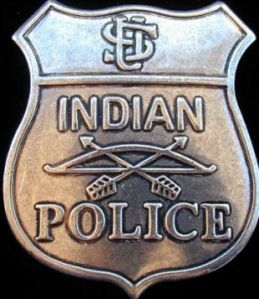Job description
Police officers work in partnership with the communities they serve to maintain law and order, protect members of the public and their property, prevent crime, reduce the fear of crime and improve the quality of life for all citizens. They use a wide range of technology to protect individuals, identify the perpetrators of crime and ensure successful prosecutions against those who break the law.
Key priorities for the 52 police forces in the UK include maintaining public order through combating organised crime, countering the threat of terrorism, and acting against antisocial behaviour.
Police officers work closely with members of the criminal justice system, social workers, schools, local businesses, health trusts, housing authorities, town planners and community groups to provide advice, education and assistance to those who wish to reduce crime or have been affected by crime.
Typical work activities
The work of a police officer is both challenging and diverse. A variety of specialist roles are available to constables who have completed their probationary period and their Diploma in Police Service Leadership and Management (Scotland), their Higher Education Certificate in Policing (Northern Ireland), or their Diploma in Policing (England and Wales).
On entry, and during initial training, activities are likely to include:
- working in partnership with communities, liaising with community groups and individuals;
- providing a visible presence to deter crime and reassure the community;
- conducting patrol duties on foot, by car and bicycle;
- developing community knowledge to identify individuals and locations at risk of being involved in crime;
- responding to calls and requests from the public to assist at incidents;
- keeping the peace at public meetings, social events, processions, trade disputes or strikes;
- diffusing potentially volatile situations with due regard for the safety of all involved;
- acting with sensitivity when dealing with situations such as delivering news of a sudden death to a family or when dealing with sexual crimes;
- conducting initial investigations, gathering evidence, taking statements and complying with relevant legal requirements;
- interviewing suspects, victims and witnesses in accordance with relevant legislation;
- conducting arrests with due regard for the human rights, security and health and safety of detained individuals, members of the public, colleagues and self;
- preparing crime reports and presenting case files to senior officers and the Crown Prosecution Service (CPS) (England and Wales) the Crown Office and Procurator Fiscal Service (COPFS) (Scotland), or the Public Prosecution Service for Northern Ireland (PPS) ;
- attending and giving evidence in court and at other hearings;
- completing administrative procedures;
- submitting internal crime reports and criminal intelligence reports;
- investigating and taking action on information received from members of the public;
- gathering, recording and analysing intelligence to achieve community safety and crime reduction objectives and providing crime prevention advice;
- taking direction on specific duties from senior colleagues;
- attending road-related incidents including collision scenes, vehicle check points and traffic offences;
- enforcing road traffic legislation and issuing fixed penalties for relevant offences;
- dealing with lost or found property.


